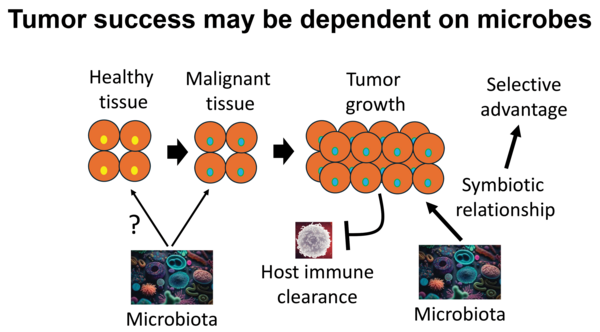Pilot Project
Decoding Taxa, Antibiotic Sensitivity and Gene Expression in Tumor Microbiota
Glenn Dorsam, PhD
Associate Professor
Microbiological Sciences
This research explores a new approach to treating pancreatic cancer by targeting bacteria within tumors. Pancreatic tumors often host unique bacteria that thrive in low-oxygen environments, which may help the cancer evade destruction by the immune system. The project aims to identify specific bacteria that influence tumor growth and explore ways to deliver targeted antibiotics directly to these bacteria. Additionally, the study will investigate how cancer cells and tumor-invading bacteria change gene activity, potentially revealing new treatment targets. This approach could open up innovative therapies, offering new hope for improving outcomes in pancreatic cancer treatment.

Modulating platelets and cancer cells cross-talk as a therapeutic strategy for pancreatic cancer
Elisabetta Liverani, PhD
Assistant Professor
Pharmaceutical Sciences
Pancreatic cancer is one of the most malignant tumors in the digestive system, with high mortality and poor prognosis. We need new therapeutic strategies and biomarkers to ensure an early diagnosis, as the current treatment options are limited.
Platelets are anucleate cells essential for maintaining vascular hemostasis as well as for inflammatory responses. However, there is growing evidence that platelets actively contribute to cancer growth and metastasis. Indeed, platelet count is associated with poor prognosis. Moreover, pancreatic cancer cells secrete molecules that can activate platelets. Once activated, platelets aggregate, increasing the risk of thrombosis in cancer patients. Activated platelets will also secrete second messengers that communicate with immune cells.
Figure 1: Crosstalk between platelets and cancer cells
|
Hence, modulating the crosstalk between platelets and cancer cells could provide new strategies to prevent cancer growth, immune avoidance, and metastasis in pancreatic cancer. Previous studies have shown that blocking specific pathways (e.g., P2Y12) in platelets decreases cancer growth and spread both in vitro and in vivo (see Fig. 1).
Which pathway(s) to modulate and whether it represents a feasible treatment strategy still need to be established. The project aims to investigate platelets and pancreatic cancer cell crosstalk to identify specific targets that can prevent cancer growth and metastasis once modulated.
We hypothesize that blocking specific pathways will modulate platelets and pancreatic cancer cells' crosstalk, and as a result, pancreatic cancer growth and metastasis will be prevented. Our findings will elucidate platelet and pancreatic cancer cell crosstalk and lay a solid foundation for discovering novel therapeutic targets to prevent cancer growth and metastasis.


